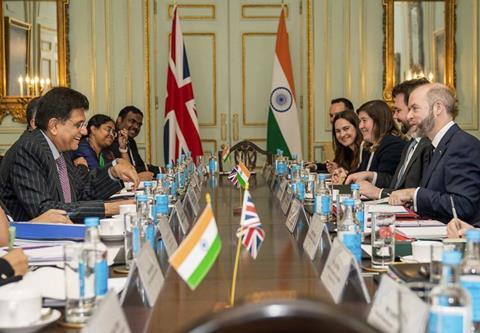
British food and drink producers are rejoicing in the news of a “historic” trade deal between the UK and India that will see popular goods like whisky and lamb become much easier to export to the booming Asian economy.
Announced on Tuesday after several days of intense discussions between officials from both countries, the deal will slash Indian tariffs on key UK products such as whisky and cosmetics, locking in reductions on 90% of tariff lines for exports over the coming years, the government said.
The Department for Business & Trade also estimated the agreement would “increase bilateral trade by £25.5bn a year by 2040, UK GDP by £4.8bn and wages by £2.2bn each year in the long run”, dubbing it “the best deal India has ever agreed to”.
Whisky and gin tariffs will be halved from 150% to 75% before reducing to 40% by year 10 of the deal. Meanwhile, other agrifood products will also benefit from the reductions, such as soft drinks dropping from 33% to 0% after seven years, and lamb dropping from 33% to 0% at entry into force.
Other goods with reduced tariffs, which will make trade cheaper for businesses and Indian consumers, include salmon, chocolate, biscuits and cosmetics.
On the other hand, British shoppers could also see cheaper prices and more choice on products including clothes, footwear, and food products such as frozen prawns as the UK also liberalises tariffs.
The deal – which has landed after three years of on-off negotiations and is Britain’s biggest bilateral agreement since leaving the EU – is also a major win for prime minister Keir Starmer, particularly amid global trade uncertainty caused by Donald Trump’s tariff policies and a slowdown in US-UK talks.
Starmer hailed the “landmark deal with India, one of the fastest-growing economies in the world, which will grow the economy and deliver for British people and business”.
Delighted to speak with my friend PM @Keir_Starmer. In a historic milestone, India and the UK have successfully concluded an ambitious and mutually beneficial Free Trade Agreement, along with a Double Contribution Convention. These landmark agreements will further deepen our…
— Narendra Modi (@narendramodi) May 6, 2025
The news came after business & trade secretary Jonathan Reynolds and Indian commerce minister Piyush Goyal held final talks in London last week, with negotiators on both sides having “worked around the clock since February to get this deal done”, the department said in a statement.
Reynolds said: “In times of global uncertainty, a pragmatic approach to global trade that provides businesses and consumers with stability is more important than ever.
“The benefits for UK businesses and consumers under this deal are massive, with wins across an array of sectors.”
Last year, trade between the UK and India totalled £41bn. And based on 2022 trade figures, the deal will see India cut tariffs worth over £400m when the deal comes into force, which would more than double to around £900m after 10 years, DBT estimated.
Karen Betts, CEO of the Food and Drink Federation, said the FTA ”represents a significant opportunity for British food and soft drinks” manufacturers, who exported nearly £300m worth of food and drink to India in 2024.
”The FTA will also provide UK manufacturers with greater access to ingredients produced in India, strengthening the supply chain resilience and competitiveness for our sector”, she added.
Mark Kent, CEO of the Scotch Whisky Association, said the “reduction of the current 150% tariff on scotch whisky will be transformational for the industry, and has the potential to increase scotch whisky exports to India by £1bn over the next five years, creating 1,200 jobs across the UK”.
Chivas Brothers – part of the Pernod Ricard group, which exports over £2bn of scotch whisky and gin every year, including brands like Chivas Regal, Ballantine’s, The Glenlivet and Beefeater – counts India as one of its biggest export markets.
The company said the deal would help solidify and potentially expand on Pernod Ricard’s existing investments, which includes a €200m distillery construction in the Indian state of Maharashtra and £100m in bottling facilities in Dumbarton, Scotland.
“The announcement of a free trade agreement in principle between the UK and India is a welcome boost for Chivas Brothers during an uncertain global economic environment”, said Chivas Brothers chairman and CEO, Jean-Etienne Gourgues.
“India is the world’s biggest whisky market by volume and greater access will be a game-changer for the export of our scotch whisky brands, such as Chivas Regal and Ballantine’s.
“The deal will support long-term investment and jobs in our distilleries and bottling plants in Scotland,” he added.
Read more: Reciprocal trade tariffs will force UK small businesses to quit US market, data shows
Drinks giant Diageo, the maker of Johnnie Walker, Crown Royal, J&B and Buchanan’s whiskies, already counts India as one of its largest markets globally, accounting for almost half of its total global spirits volume.
The company is among the top 10 fmcg companies in India by market cap, with 50 manufacturing facilities across the country and employing over 3,300 people directly in market.
CEO Debra Crew branded the trade deal as “a huge achievement by prime ministers Modi and Starmer and ministers Goyal and Reynolds, and all of us at Diageo toast their success”.
“It will be transformational for scotch and Scotland, while powering jobs and investment in both India and the UK,” she added.
The changes will also make it easier for small and medium-sized businesses to enter Indian markets.
Take British chocolate, biscuits and confectionery maker Cocoda, which traded in India in the past but was since forced to exit the country due to “a killer current import duty of 60%”, noted MD David Hill.
Removing the tariffs would be “an advantage” for the sector, he said, but added loosening “onerous” customs and regulatory barriers would also be key to helping businesses make it in India.
The government has pledged the deal would bring “savings from speedier and easier trade from improved customs and digital commitments”.
BREAKING: The UK has now secured a landmark trade deal with India.
— Department for Business and Trade (@biztradegovuk) May 6, 2025
This agreement will slash tariffs on key products like whisky, cosmetics and medical devices and unlock opportunities for businesses across regions and nations of UK.
More 👉 https://t.co/LgwVOYg6s6 pic.twitter.com/6prvsTqsVo
For the meat sector, this too is welcome news.
AIMS, formally known as The Association of Independent Meat Suppliers, said it was “excellent news” for its lamb processing members.
“Be it our premium brands such as Welsh PGI Lamb and Scotch PGI Lamb for the rapidly growing middle class, or our high-quality assured halal lamb for India’s 200 million Muslim consumers, the UK has a great opportunity in this market”, said Tony Goodger, head of communications.
“We will be seeking clarification from DBT over the coming days as to whether pork and petfood, both of which have active export health certificates in place, are likely to see similar tariff easements over time.”
And David Snodgrass from Butterfly Poultry, which “has India on his target market list”, said the trade deal was “the difference between selling products there and not”.
Plus, “as an importer into the UK we could see potential secondary benefits as there is a growing meat production industry in India that we could access for supply to the UK market”, he added.
“I am sure other importers might be more nervous, but I don’t see it as a huge risk as it is likely they would actually be looking to take market share from Thailand on party foods and cooked so it’s unlikely the UK industry would lose any business.”
Meanwhile, London-based think tank, the Institute For Public Policy Research, said in a statement the deal struck between India and the UK showed British ministers were “the grown-ups in the room” as Donald Trump’s tariffs continued to sow global disarray.







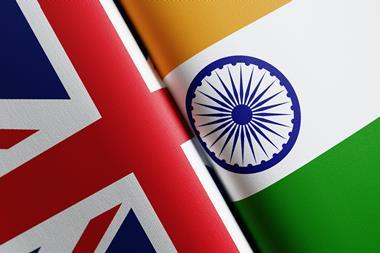
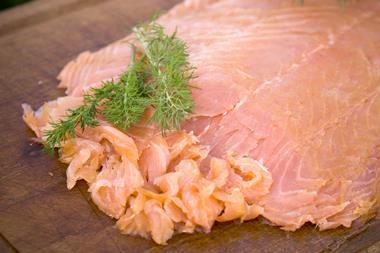
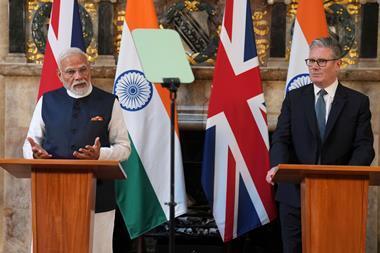
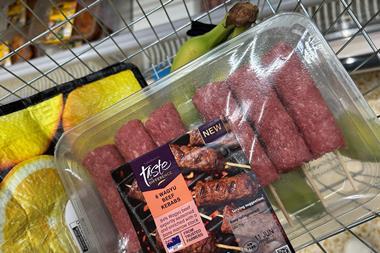
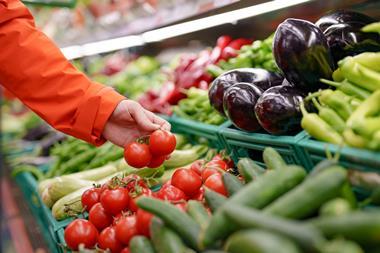
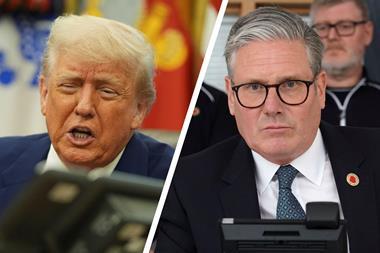






No comments yet